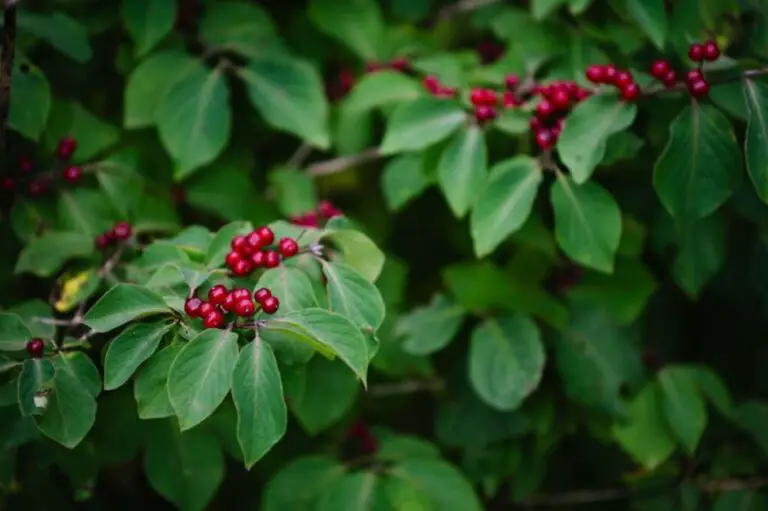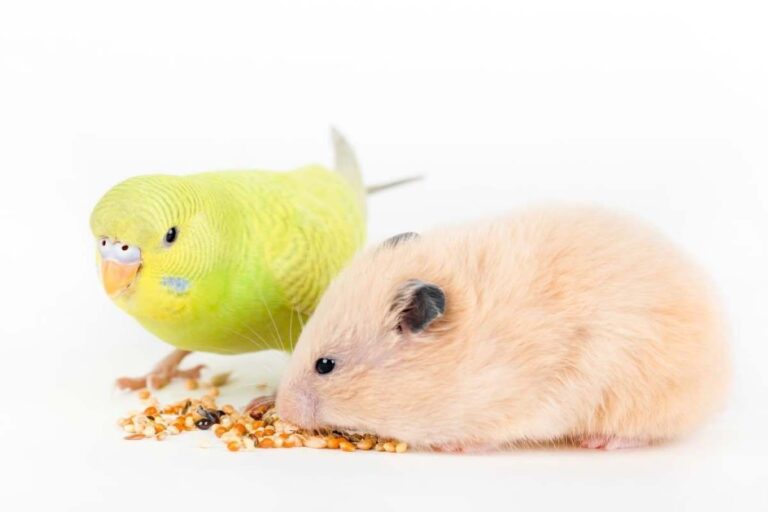Can Parrots Eat Pineapple?
Parrots can safely enjoy pineapple as part of their diet. This tropical fruit is rich in essential nutrients like Vitamin C, beneficial for their health. However, due to its high sugar and acidity levels, it should be offered in moderation as an occasional treat.

Ever shared a gaze with your parrot as you bit into a juicy slice of pineapple, and wondered, “Could my feathery friend enjoy this tropical delight too?” Well, you’re in luck! We’re here to answer just that, and the answer is a resounding yes – but with a bit of a twist.
In this blog post, we’re taking a colorful flight into the world of parrots and pineapples. We’ll delve into the health benefits, expose the risks, and even whisk you through a handy guide on how to serve this fruity treat. Sounds exciting? We think so too! So, buckle up, fellow bird enthusiasts, because we’ve got a wealth of knowledge to share. Let’s navigate this pineapple-parrot conundrum together, ensuring we’re offering nothing but the best to our winged pals!
Key Takeaways:
- Parrots can safely consume pineapple, which provides several health benefits such as Vitamin C and dietary fiber.
- Overfeeding pineapple can lead to health complications due to its high sugar and acid content.
- Signs of pineapple overconsumption in parrots can include changes in behavior, droppings, loss of appetite, and lethargy.
- Always introduce new foods like pineapple gradually, observing your parrot for any adverse reactions.
- Pineapples should be thoroughly washed, and cut into small, manageable pieces before being offered to parrots.
- Canned pineapple should be avoided due to added sugars and preservatives.
- A balanced parrot diet should include a variety of fruits, vegetables, seeds, and pellets along with occasional treats like pineapple.
- If a parrot shows any discomfort or signs of illness after consuming pineapple, it’s recommended to consult with a vet immediately.
Are Pineapples Safe for Parrots?
Understanding the Parrot’s Diet
A typical parrot diet in the wild consists of a variety of foods. As omnivores, they consume a mix of plant-based and animal-derived food, including fruits, seeds, nuts, flowers, and even insects.
When we recreate this diet in captivity, it’s crucial to ensure we provide our feathered friends with a balance of these foods. Fruits play a substantial role in this diet, and it’s natural for parrot owners to wonder which fruits are safe to feed their birds. This leads us to the question, “Can parrots eat pineapple?“
Is Pineapple Safe for Parrots?
The straightforward answer is yes, pineapples are safe for parrots to consume. They don’t contain any toxins or substances that would be harmful to your bird. So, if you’re considering expanding your parrot’s diet, you might include pineapple as an occasional treat.
Health Benefits of Pineapple for Parrots
Feeding pineapple to your parrot isn’t just about offering a new flavor; it also comes with several health benefits. Pineapples are rich in vitamins and minerals that support your parrot’s overall well-being.
Here are some key benefits:
- Rich in Vitamins: Pineapples are packed with essential vitamins, especially Vitamin C, which helps boost the bird’s immune system and prevents various diseases.
- High in Fiber: The high fiber content in pineapples aids in the bird’s digestion and keeps them full for longer periods.
- Hydration: Pineapples have high water content, providing an additional hydration source, particularly beneficial during the warmer months.
Precautions While Feeding Pineapple to Parrots
Even though pineapples are safe and healthy, there are still a few precautions to take when feeding pineapple to your parrot. Always ensure the pineapple is thoroughly washed to remove any potential pesticides or harmful chemicals from the skin. It’s better to peel off the skin and cut the pineapple into small, manageable pieces to prevent choking hazards.
Read also: Can Parrots Eat Watermelon?
Risks of Feeding Pineapple to Parrots

While pineapples are generally safe for parrots, it’s important to note that overfeeding any fruit, including pineapple, can lead to health complications.
Potential Hazards
Despite their many benefits, feeding your parrot excessive amounts of pineapple may cause issues due to its high sugar and acid content. Here’s what you need to know:
- Acidity: Pineapples are known for their tart, tangy flavor, which comes from their high citric acid content. In large quantities, this acid can cause mouth sores or digestive discomfort in parrots. The key is to feed pineapples in moderation, and always keep an eye out for any discomfort your parrot may show after eating this fruit.
- High Sugar Content: Like many fruits, pineapples contain natural sugars. While these sugars are not harmful in moderation, excessive amounts can lead to obesity in parrots, along with associated health issues like heart disease or diabetes.
Signs of Potential Problems
While it’s generally safe for parrots to consume pineapple, you should still watch out for any signs that it might not be agreeing with your bird. The signs of potential problems could be changes in their behavior or droppings, loss of appetite, lethargy, or any other unusual behaviors. If you observe any of these signs, it’s advisable to stop feeding your parrot pineapple and consult with a vet immediately.
In conclusion, pineapple can be a delightful treat for your parrot, offering a refreshing change from their regular diet. However, as with all foods, moderation is essential. Make sure to keep an eye on your parrot for any signs of discomfort after feeding pineapple, and always consult with a vet if you notice any issues.
Read also: Can Parrots Eat Oranges?
How to Feed Pineapple to Parrots: A Step-by-Step Guide

Introducing new food to your parrot’s diet should always be a careful and gradual process. Here’s a detailed guide on how to feed pineapple to parrots, ensuring it’s a safe and enjoyable experience for your feathered friend.
1. Preparing the Pineapple
Begin by picking a ripe pineapple, which is more likely to be accepted by your parrot due to its sweetness. Prepare the fruit by thoroughly washing it to remove any residual pesticides or harmful chemicals.
Pro Tip: Always use a sharp knife to cut the pineapple. Remove the outer layer and the eyes, which can be tough and potentially harmful if ingested by your parrot.
Cut the pineapple into small, manageable pieces that your parrot can easily pick up with its beak. Remove the core as it can be too tough for parrots to chew.
2. Introducing the Pineapple to the Parrot
When it’s time to feed the pineapple to your parrot, start slow. Begin with a small piece and monitor your parrot’s reaction. This cautious approach allows your parrot to get used to the new food, and you can observe for any adverse reactions.
3. Monitoring the Parrot’s Reaction
Keep a close eye on your parrot after introducing pineapple. Watch out for changes in behavior, appetite, or droppings as these could be signs of an adverse reaction. If your parrot shows signs of discomfort or does not appear to enjoy the pineapple, it’s best not to force it. Each parrot is unique, and not all will like the same foods.
4. Making Pineapple a Part of a Balanced Diet
While pineapples offer many benefits, remember they should not make up a large portion of your parrot’s diet. Consider pineapple as an occasional treat. Always pair it with a balanced diet that includes a variety of fruits, vegetables, seeds, and pellets to ensure your parrot gets all the necessary nutrients.
When fed responsibly, pineapples can be a wonderful addition to your parrot’s diet. They provide a unique flavor and a range of health benefits, making them an excellent treat for your feathered friend.
Read also: Can Parrots Eat Strawberries?
Final Thoughts
In conclusion, the sweet, tangy delight of pineapple can indeed be shared with our feathery friends. While it’s perfectly safe, the golden rule is moderation, ensuring that our parrots can enjoy the benefits of this tropical fruit without any risks. As we’ve learned, the vibrant world of a parrot’s diet isn’t simply black and white. It’s a colorful mix of careful consideration, balance, and a touch of tropical zest!
We hope this deep dive into the world of parrots and pineapples has given you the insights you need to enrich your parrot’s diet with confidence. Remember, every bite your parrot takes is an opportunity for nourishment, enjoyment, and bonding. So, the next time you treat yourself to a slice of pineapple, know that you can extend the treat to your feathery companion too. Here’s to a healthy, happy life full of fruity fun for our beloved parrots!
Frequently Asked Questions
1. Can birds eat pineapples?
Yes, most birds, including parrots, can safely eat pineapples. However, it’s important to serve it in moderation due to its high sugar and acidity levels.
2. Is pineapple safe for Quaker parrots?
Yes, Quaker parrots can safely eat pineapple. Like other parrots, it should be served in moderation as part of a balanced diet.
3. Can African GREY parrots eat pineapple?
Absolutely, African Grey parrots can eat pineapple. It’s a nutritious treat, but should be offered sparingly due to its high sugar and acidity content.
4. Can parrots have dried pineapple?
Yes, parrots can eat dried pineapple, but it is often high in sugar and should be given as an occasional treat only.
5. How often can I feed pineapple to my parrot?
Pineapple can be fed to your parrot once or twice a week. It’s best to consider it an occasional treat rather than a regular part of their diet.
6. Can I feed canned pineapple to my parrot?
It’s not recommended to feed canned pineapple to parrots, as it often contains added sugars and preservatives which can be harmful to their health.

Martin Cooper
Hello and welcome! I’m an avid bird enthusiast, dedicated to observing, understanding, and documenting our feathery friends. I hope my passion and knowledge inspires your own avian admiration! Join me as we soar into this fascinating world.






